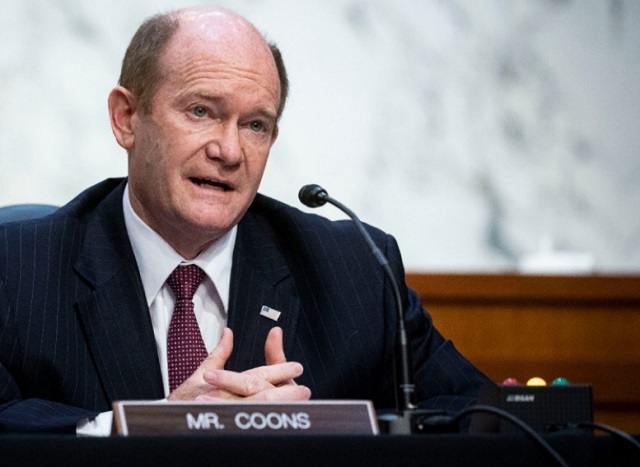
After Trump’s insults and detachment, the Biden administration is crafting a new, more engaged approach to the continent
| LYNSEY CHUTEL | From expletive-laden rants at the start of his presidency to allowing corruption to run rampant as one of his last foreign-policy acts, former U.S. President Donald Trump’s relationship with the African continent was characterised by detachment.
While he hosted leaders considered important to his administration’s security ambitions, Trump himself never set foot on the continent. A new administration with a new foreign-policy strategy under President Joe Biden is already showing a marked shift toward African priorities.
A fresh start
“We’re not simply picking up where we left off, as if the past four years didn’t happen. We’re looking at the world with fresh eyes,” Secretary of State Antony Blinken said in a speech outlining his department’s goals.
It was part of the Biden administration’s ambition to make foreign policy serve the American middle class, but the bid to build national consensus on international issues will be felt most acutely by the countries that are prioritised or ignored.
Among the State Department’s list of eight focus areas—including immigration, the COVID-19 pandemic, U.S.-China relations, and cybersecurity—was the clear message that the U.S. government planned to return to the world stage.
Africa could benefit from the State Department’s new focus on the climate crisis and strengthening democracy, but the emphasis on rebuilding alliances will be key as regions from the Sahel to the Horn of Africa become the front lines in emerging security crises.
Hands-on in Ethiopia
The State Department’s decision to openly raise allegations of human rights abuses and massacres in Ethiopia shows a willingness to once again play a role as an international voice of conscience, a shift from the perceived moral indifference the Trump administration had toward Africa. This week, a close Biden ally, Sen. Chris Coons, arrived in Ethiopia to “convey President Biden’s grave concerns about the humanitarian crisis and human rights abuses in the Tigray region and the risk of broader instability in the Horn of Africa.”
Focus on the Horn
Signaling the importance of the conflict, Biden is also expected to tap seasoned diplomat Jeffrey Feltman as his special envoy for the Horn of Africa.
“Our consistent senior-level engagement—including on security, global health, climate change, freedom and democracy, and shared prosperity—demonstrates our commitment, and that certainly applies to the Horn of Africa,” a State Department spokesman told Foreign Policy about the appointment.
While Blinken has yet to outline his policy in Somalia, Feltman’s expected appointment shows a willingness to be more active in the region. Toward the end of his term, Trump ordered the withdrawal of about 700 U.S. troops from the country, where they provided support to the Somali military, including dozens of airstrikes targeting al-Shabab.
The January withdrawal came at a time when Somalia seemed at risk of sinking further into political chaos. Last week, the State Department called on Somali politicians to set their differences aside and pursue the election process that stalled in February.
`Iraqification’ of African issues
Critics fear the U.S. influence further south could worsen the security crisis in Mozambique and in the Democratic Republic of the Congo. Earlier this month, the State Department designated insurgent groups in both countries as terrorist organisations due to their alleged links to the Islamic State. The designation makes way for greater involvement, as already seen in Mozambique, where U.S. Special Forces will begin training Mozambican security forces.
But this has raised concerns of what one analyst calls an “Iraqification” of the region through a militarised response that overlooks the socioeconomic realities on the ground in favour of what seems like a quick fix. In the Democratic Republic of the Congo, analysts fear that identifying the violence with the Islamic State overlooks the historic roots of a decades-old conflict.
Soft power
But U.S. foreign policy in Africa is about much more than military assistance. It encompasses an economic relationship that has been largely imbalanced, but also a raft of humanitarian policies that have become essential to the continent’s poor.
Former President George W. Bush had the African Growth and Opportunity Act and the massive President’s Emergency Plan for AIDS Relief, while his successor Barack Obama had Power Africa and the Young African Leaders Initiative. Even Trump, who was late to realise the region’s importance, announced the Prosper Africa trade program, largely to woo governments and business away from China’s Belt and Road Initiative.
Image matters when trying to counter Chinese influence in Africa, but these broad-brush efforts have often overlooked the agency of Africans in seeking to foster a relationship with Beijing over Washington. Obama appealed to the continent’s youth, while Trump was surprisingly popular with Africa’s authoritarian regimes.
Biden could build a legacy on the continent by prioritising the Africans left behind economically and caught in the middle of violent conflicts.
***
Source: Foreign Policy magazine
 The Independent Uganda: You get the Truth we Pay the Price
The Independent Uganda: You get the Truth we Pay the Price






Spot ON. The only thing left out is that the Americans under Trump and their cousins in Europe opted to prop up Bobi Wine to help them in their Ugandan endevours